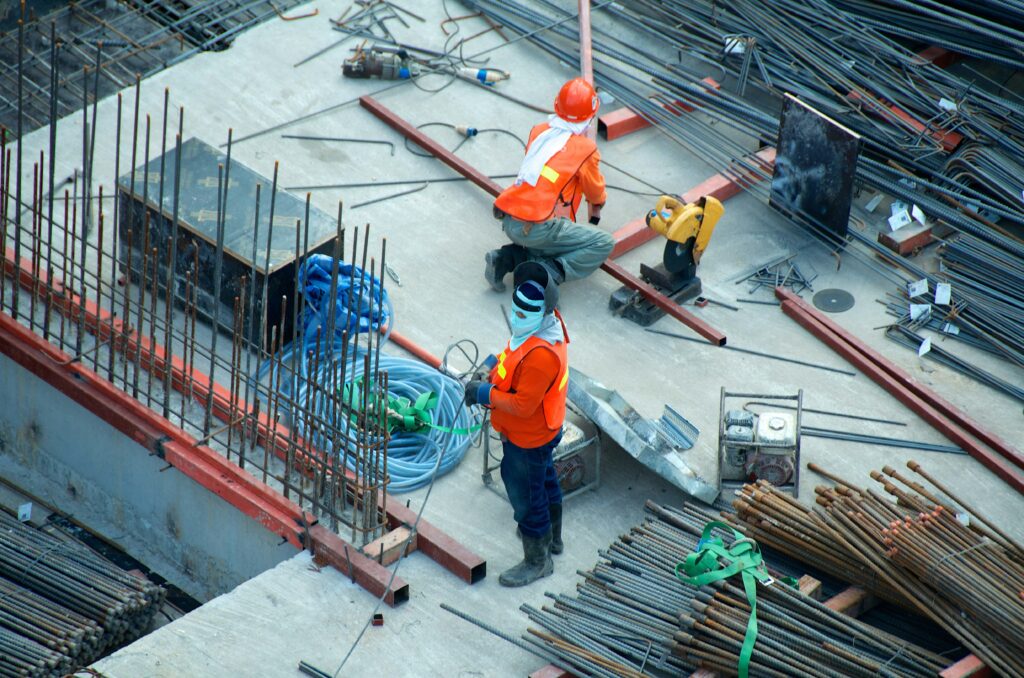Table of Contents
What is the General Maintenance of a Building?
General Maintenance of a Building is crucial for ensuring safety, functionality, and longevity. Whether it’s a residential, commercial, or industrial property, regular upkeep is necessary to prevent costly repairs and maintain value. This guide will walk you through the key aspects of building maintenance, including routine tasks, seasonal checkups, and emergency repairs.

Why is General Maintenance of a Building Important?
Regular building maintenance is essential for multiple reasons, ranging from safety and cost savings to energy efficiency and long-term value. Here’s why keeping up with maintenance is crucial:
1. Enhances Safety
Neglecting maintenance can lead to hazardous conditions such as structural instability, electrical failures, and plumbing leaks. Routine checks ensure a secure environment for occupants, preventing accidents and legal liabilities.
2. Reduces Costly Repairs
Minor issues, if left unaddressed, can escalate into major problems requiring expensive repairs. Preventive maintenance helps detect and resolve issues early, reducing overall repair costs.
3. Extends Building Lifespan
Regular maintenance preserves the structural integrity of a building, ensuring that materials and systems last longer. Proper care of essential components like roofs, foundations, and HVAC systems prevents premature deterioration.
4. Improves Energy Efficiency
Efficiently maintained buildings consume less energy. Proper insulation, well-functioning HVAC systems, and leak-free plumbing contribute to lower energy consumption and reduced utility bills.
5. Boosts Property Value
A well-maintained building has a higher market value compared to one with neglected upkeep. Prospective buyers and tenants are more attracted to properties that are in good condition.
6. Ensures Compliance with Regulations
Many cities and states have specific building codes and safety regulations. Regular maintenance helps businesses and homeowners stay compliant with these legal requirements, avoiding fines and penalties.
7. Enhances Comfort and Productivity
For commercial and residential buildings alike, maintenance ensures a comfortable indoor environment. Proper heating, cooling, lighting, and sanitation contribute to better productivity in workplaces and improved living conditions in homes.
8. Prevents Pest Infestations
Unmaintained buildings with cracks, leaks, and poor sanitation can attract pests like rodents and insects. Regular inspections and upkeep help in pest control, reducing health risks and damage to the structure.
9. Protects Against Weather Damage
Severe weather conditions such as storms, heavy rainfall, or extreme heat can impact a building’s integrity. Maintenance activities like checking roofs, sealing windows, and inspecting drainage systems help buildings withstand harsh weather.
10. Supports Sustainability Goals
Green building maintenance practices, such as using energy-efficient systems, reducing waste, and incorporating sustainable materials, contribute to environmental conservation and sustainability.
Do Buildings Need Maintenance?
Types of General Maintenance of Building
1. Structural Maintenance
The structural integrity of a building is essential. Regular inspections should be conducted to check for cracks, water damage, or foundation issues. Addressing these problems early can prevent costly repairs in the future.
2. Electrical System Maintenance
Electrical maintenance ensures the safe and efficient operation of power systems. This includes checking wiring, replacing faulty outlets, and ensuring circuit breakers function properly.
3. Plumbing System Maintenance
Leaky pipes, clogged drains, and malfunctioning water heaters can cause severe damage. Routine inspections help detect and fix plumbing issues before they become major problems.
4. HVAC System Maintenance
Heating, ventilation, and air conditioning (HVAC) systems require periodic servicing to ensure energy efficiency and proper indoor air quality. Filters should be replaced regularly, and units must be cleaned to maintain performance.
5. Roofing and Gutter Maintenance
Regular roof inspections can help detect leaks, missing shingles, or sagging structures. Cleaning gutters prevents water damage and ensures proper drainage.
Looking for reliable building maintenance?
6. Fire Safety Maintenance
Fire alarms, extinguishers, and sprinkler systems must be tested and maintained regularly to comply with safety regulations and ensure quick response in emergencies.
7. Security System Maintenance
CCTV cameras, access control systems, and alarms must be inspected to ensure optimal security. A well-maintained security system helps protect occupants and property.
8. Landscaping and Exterior Maintenance
Maintaining the building’s exterior, including landscaping, helps improve curb appeal and prevents issues like erosion or water accumulation near the foundation.
9. Elevator and Escalator Maintenance
For buildings with elevators or escalators, routine servicing is essential to ensure safety, efficiency, and compliance with regulations.
10. Cleaning and Sanitation
Regular cleaning and sanitation maintain hygiene, reduce allergens, and create a pleasant environment for occupants.
How Often Should Building Maintenance Be Performed?
Daily Maintenance
- Cleaning common areas
- Checking security systems
- Addressing minor repairs
Weekly Maintenance
- Inspecting exterior and interior lighting
- Checking for plumbing leaks or water damage
- Examining security and alarm systems for functionality
Monthly Maintenance
- Inspecting HVAC filters
- Testing fire alarms and smoke detectors
- Checking plumbing fixtures for leaks or blockages
- Inspecting parking areas and pathways for safety hazards
Quarterly Maintenance
- Servicing HVAC units to maintain efficiency
- Deep cleaning floors, carpets, and upholstery
- Checking electrical wiring and outlets for wear and tear
- Evaluating pest control measures
Biannual Maintenance
- Inspecting roof and drainage systems
- Checking and sealing windows and doors for energy efficiency
- Servicing fire suppression and sprinkler systems
Annual Maintenance
- Roof and foundation inspection
- Comprehensive plumbing system checks
- Full security system audit
- Structural integrity assessment
- Energy efficiency evaluation and upgrades

Best Practices for Effective General Maintenance of Building
- Keep a maintenance schedule
- Use professional service providers
- Conduct regular inspections
- Address repairs promptly
- Invest in energy-efficient solutions
- Train staff on maintenance protocols
- Utilize smart building technology for monitoring
- Maintain proper documentation of all maintenance activities
- Follow safety regulations and compliance standards
- Plan for emergency maintenance and repairs
Get Professional Building Maintenance Services
FAQs About General Maintenance of Building
1. What is included in general building maintenance?
General maintenance covers structural upkeep, HVAC servicing, plumbing, electrical systems, cleaning, and security checks.
2. How can I reduce building maintenance costs?
Regular inspections, preventive maintenance, and using high-quality materials help minimize costs in the long run.
3. What are the most common building maintenance issues?
Leaks, electrical malfunctions, HVAC failures, and structural cracks are some of the most common issues.
4. How often should a building be inspected?
Routine inspections should be conducted monthly, while a full building assessment is recommended annually.
5. Can I handle building maintenance myself?
While minor repairs can be DIY, professional maintenance is recommended for electrical, plumbing, and structural work.
6. What are the consequences of neglecting General Maintenance of Building?
Neglecting maintenance can lead to safety hazards, costly emergency repairs, reduced property value, and legal liabilities.
7. How does seasonal maintenance differ from routine maintenance?
Seasonal maintenance focuses on weather-related tasks like winterizing pipes, checking HVAC systems before summer, and inspecting roofs after heavy storms.
8. What role does technology play in modern General Maintenance of Building?
Smart sensors, automated monitoring systems, and predictive maintenance software help optimize maintenance schedules and detect issues before they escalate.
9. How do I choose the right maintenance service provider?
Look for experienced, licensed, and well-reviewed service providers with expertise in your type of building maintenance needs.
10. Are there government regulations for building maintenance?
Yes, local and federal regulations mandate fire safety, structural integrity, energy efficiency, and accessibility compliance in buildings.
Follow us on Facebook for Quick Response & Quires – 24/7 Task Connect